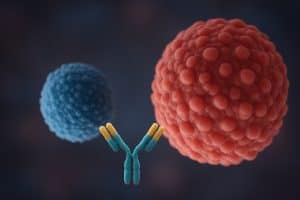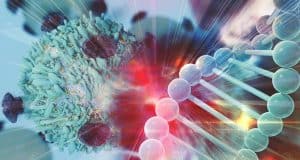Cancer Research backs ‘unique’ database
pharmafile | November 11, 2013 | News story | Research and Development, Sales and Marketing | Cancer, Database, ICR, cansar
An oncology database – said to be the world’s largest in any disease area and funded by Cancer Research UK – has been launched today.
CanSAR has been developed by scientists at London’s Institute of Cancer Research (ICR), contains 1.7 billion experimental results and will be available free to researchers worldwide.
“The CanSAR database makes it easy for scientists around the world to tap into huge amounts of information – from the lab and the clinic – to fuel new discoveries,” said Nell Barrie, Cancer Research UK’s senior science information manager.
“The clues we need to tackle cancer are hidden in data like this and by making it freely available we can boost our progress and make breakthroughs sooner,” Barrie went on.
In an attempt to describe its scale, the ICR says the ‘unique’ new database condenses more data than would be generated by one million years of use of the Hubble space telescope.
As computing power increases and content management systems become more sophisticated, billions of individual pieces of data can be meaningfully sorted and cross-referenced in ways that were simply not possible a decade ago.
To organise the data which comes from patients, clinical trials and genetic, biochemical and pharmacological research, CanSAR will use artificial intelligence similar to the technology used to forecast the weather.
This will in effect, carry out virtual experiments allowing it to predict which potential treatments are likely to work in what circumstances in a way “that no human eye could be expected to see”, ICR says.
ICR team leader in computational biology and chemogenomics Dr Bissan Al-Lazikani explains: “It…uses sophisticated computer machinery and artificial intelligent to draw paths of knowledge between them, predicts risks and opportunities and make drug-relevant suggestions that can be tested in the lab and take us closer to a drug.”
Researchers will therefore be able to get a grip on “unprecedented amounts of multidisciplinary data in seconds”, allowing them to research in minutes what would otherwise have taken months to sort out.
They will have access to more than eight million experimentally-derived measurements, nearly one million biologically-active chemical compounds and data from over a thousand cancer cell lines – as well as information from the human genome and model organisms.
“We are living in an exciting era where new technologies are allowing us to build huge databases of patient data, gene variations that are related to disease and many more clinical observations,” Al-Lazikani added.
Making sense of such ‘gold-mines of raw material’ is the real issue.
Bridging the gap between this raw knowledge and producing new drugs for patients requires a sense of how different drugs may interact with genes from these patients, which genes are most likely to be suitable for drug development and what key lab experiments need to be done to move things on.
This is where CanSAR will help, says Al-Lazikani. “It links such raw gold-mines of genetic data to whole raft of independent chemistry, biology, patient data and disease information.”
The previous version of CanSAR was less than half the size and the new model has been designed to cope with a huge expansion of data on cancer which has come from advances in DNA sequencing and other technologies.
“[Using CanSAR] a chemist and a clinician can access data from each other without having to understand each other’s jargon,” said ICR deputy chief executive Professor Paul Workman. “It is so easy to use that anyone can have a go: I fully envisage a bright A-level student using it and in the future that might even be where we see fresh ideas coming from.”
Adam Hill
Related Content

Central nervous system cancer metastases – the evolution of diagnostics and treatment
The current forms of immunotherapy, how T cell therapy works and what the future holds

BioMed X and Servier launch Europe’s first XSeed Labs to advance AI-powered antibody design
BioMed X and Servier have announced the launch of Europe’s first XSeed Labs research project, …

T-cell therapy – the evolution of cancer treatments
The current forms of immunotherapy, how T cell therapy works and what the future holds






